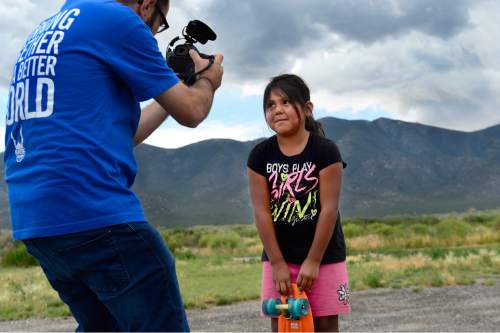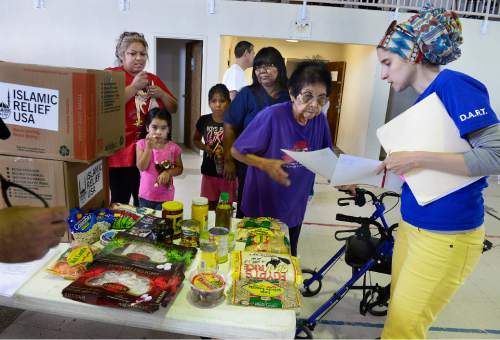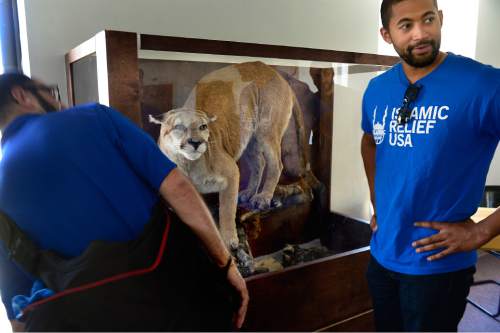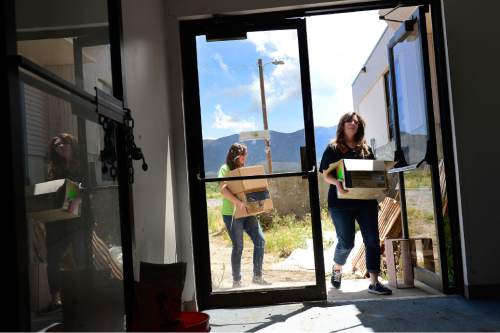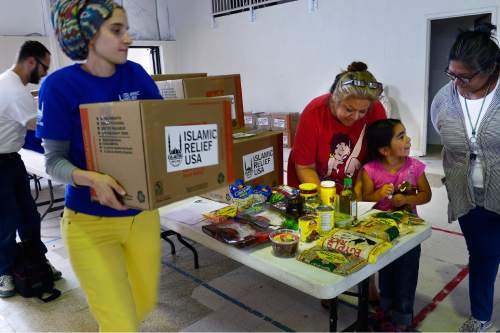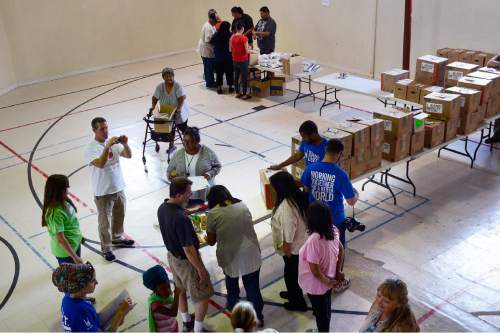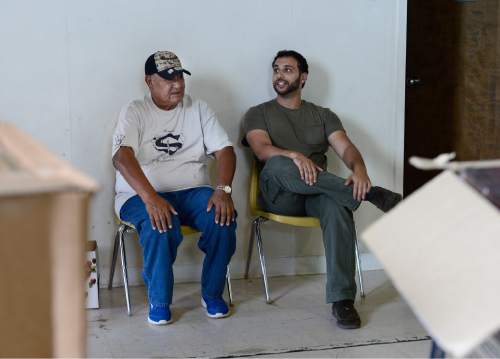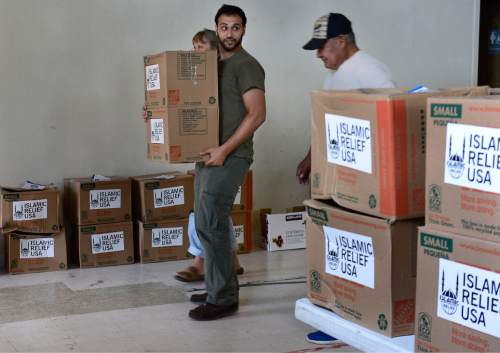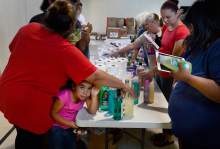This is an archived article that was published on sltrib.com in 2015, and information in the article may be outdated. It is provided only for personal research purposes and may not be reprinted.
During the month of Ramadan — which began in June — Muslims around the world fast and devote themselves to spiritual reflection and obedience. This year, Muslims with the nonprofit charity Islamic Relief USA have driven to cities across the country to distribute food to families in need — including members of the Goshute Tribe in western Utah, where "unemployment and lack of income have created generational poverty," according to a news release from Islamic Relief USA.
"The Tribal Nations are the original inhabitants of North America, and their vibrant cultures have benefited all Americans. It is Islamic Relief USA's honor to be a partner with various Native American organizations, assisting them to promote healthy and sustainable communities," the release continues.
The nonprofit, headquartered in Alexandria, Va., offers food services year-round, but this is the first year of the Ramadan bus tour. According to Islamic Relief USA, 3,000 food packages will be delivered; each box holds 30 pounds of food, such as rice, pasta, beans, cheese and dates.
On Thursday, the group visited the Goshutes in Ibapah, near the Nevadah-Utah border.

Boxes of food and hygiene items arrived just hours before the team did, and were distributed in the gym at the tribal headquarters.
Roughly 30 families live on the reservation — about 150 people total. Around 1 p.m., they began filing into the gym to pick up their boxes; one box was alloted per four people in a household.

Some of the traditional Middle Eastern foods in the boxes were unfamiliar to tribe members, who looked a bit uncertain as they examined the dates, halva spread, hummus and other items provided by Islamic Relief USA.
"Our families might prepare some meals tonight with some different tastes," said Elvira Murphy, right, director of an education program on the reservation.
Soraya Henriod was happy to see one familiar item as she picked up her food box along with her daughter Mia. "This will definitely help — and I love hummus!"
The food would also save a trip to the grocery store — the closest one is in Wendover, an hour away, said Jeanine Hooper, who works in Goshute social services. That's also the only place to get gas, so such trips are made rarely.

Miriam Soliman, right, is Islamic Relief USA's disaster assistance response coordinator. As people such as Florence Steele, above, picked out donations, Soliman patiently answered questions about the food. "You just treat them with respect," she said. "What culture doesn't teach you to respect your elders?"
During Ramadan, Muslims eat only after sundown, so as Soliman touched and talked about food, she'd been fasting for hours. But those with Islamic Relief USA said that going without food, by choice, is not as gnawing a pain as one might think — one simply gets used to not eating.

The visitors learned, too. Ridwan Adhami, left, and Minkailu Jalloh, both of Islamic Relief USA, admired a mountain lion that was killed on the Goshute reservation and then displayed in the tribal headquarters.

Other organizations were also on the reservation that day. MaKel McCracken and her mother, Kristy McCracken, of Building Youth Around the World, helped with Islamic Relief USA's food boxes, and then continued work on some of the reservation's buildings that are in disrepair.
Steve Edwards, there with We Wellcare, planned to return to the reservation to train teachers. Currently, he said, there aren't many educational opportunities for the youth of the tribe.

Mia Henriod, 5, peeked out from under the arm of her mother as she looked through some hygiene items.

Ahmed Mostafa, right, of Islamic Relief USA, speaks with a Goshute man

Mostafa helps a Goshute family take their Islamic Relief USA boxes to their car.


